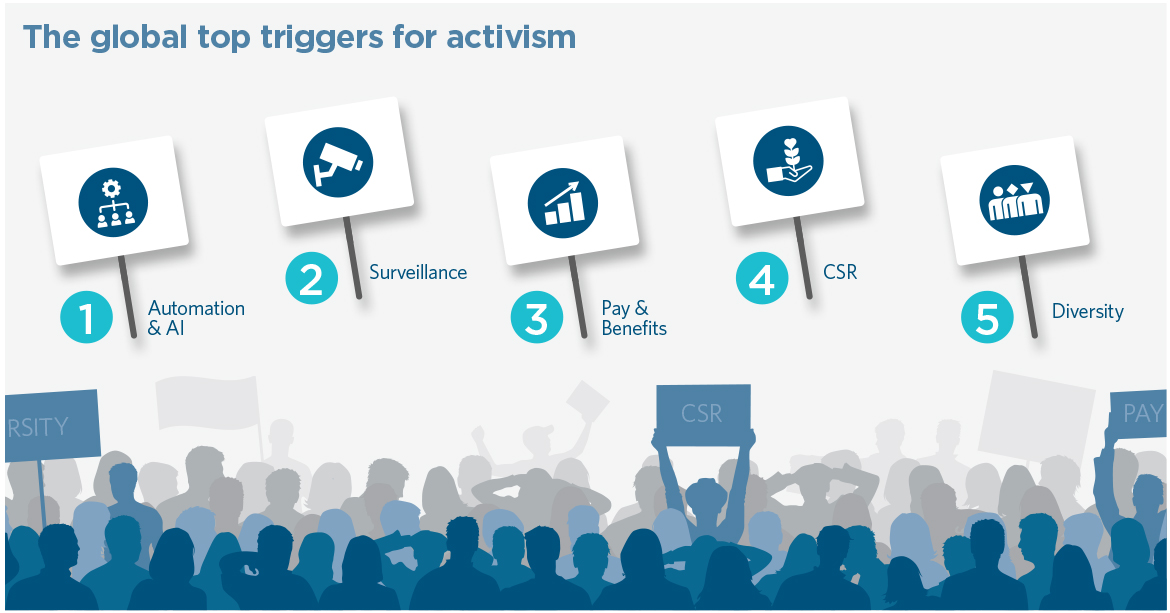Stay in the know
We’ll send you the latest insights and briefings tailored to your needs
Our report explores the unprecedented rise in workplace activism and asks how employers should respond.
Across all sectors and geographies workers are becoming more vocal in articulating their views – about the workplace, their employer and about wider social issues – and increasingly holding organisations to account, enabled and amplified by social media. This trend is set to grow and gives rise to new and distinct risks for employers.
To help prepare for what’s ahead, we surveyed ~400 cross-sector C-suites worldwide to understand the triggers and scale of this trend.
The paradox of the robotic age is that automation will only make human skills more valuable. The World Economic Forum estimates that 75 million jobs will be lost to automation by 2022 but 133 million new jobs will be created – jobs requiring uniquely human qualities such as emotional intelligence and fine judgment. But unlike robots, humans have opinions – and that presents its own challenges for employers.
Our survey warns of an unprecedented rise in workplace activism ahead, across all sectors and geographies. As employers explore different working models and advanced technologies, those working for them are becoming more vocal in articulating their views – about the workplace, their employer and about wider social issues – enabled and amplified by social media. The voice of the workforce will insist on being heard as never before. If traditional, internal communication channels fail to meet their needs, external means of raising concerns will fill the gap. Employers need to be prepared for what’s ahead.
|
|
The future of work will see an unprecedented rise in workplace activism, enabled and amplified by social media.
Across all sectors and geographies workers are becoming more vocal in articulating their views – about the workplace, their employer and wider social issues.
95% of those we surveyed said they expect to see an increase in their workforce making its voice heard through social media channels in the future.
Digital technology and social media have provided a convenient way for the workforce to express their views, compare their experiences with others and, when needed, mobilise a response. If traditional, internal communication channels fail to meet their needs, external means of raising concerns will fill the gap.
The organisations that will thrive in the workplace of the future will be those that find a way to redefine the workforce relationship, manage tensions and create a common, compelling vision.

Key findings reveal that in the next 3-5 years:

Workplace activism in the age of digital communication calls for a new mindset from employers. Leadership styles may have to change and established procedures and policies will certainly have to be adapted to contend with a more democratised workforce. Protecting and nurturing the trust and engagement between employers and the workforce in this environment is paramount. The organisations that will thrive will be those that find a way to redefine the workforce relationship, manage tensions and create a common, compelling vision.
To succeed in the new world of work download your copy of the report here.

Regional Head of Practice (EMEA) - Employment Pensions and Incentives, Paris
The contents of this publication are for reference purposes only and may not be current as at the date of accessing this publication. They do not constitute legal advice and should not be relied upon as such. Specific legal advice about your specific circumstances should always be sought separately before taking any action based on this publication.
© Herbert Smith Freehills 2024
We’ll send you the latest insights and briefings tailored to your needs